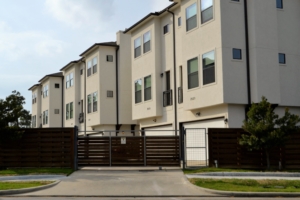
City officials, for years, have struggled to find ways to provide more affordable housing options for residents, and now funding for these efforts is more available than ever. One funding source that has created revenue specifically for affordable housing is the Low-Income Housing Tax Credits (LIHTC) program. It offers extremely attractive incentives for private-sector investors, and it is positively impacting the launch of new projects throughout the country.
Funding from the LIHTC program is already being used to subsidize 2 million new or rehabilitated rental units for families making less than the adjusted median income. Housing agencies are benefitting from an abundance of available funding because of high interest from investors attracted to developments eligible for tax credits. These types of public-private partnerships represent a trend worth watching.
 In Maine, LIHTC funding will be used to leverage over a third of the $22.4 million budget commitment to develop 46 new affordable housing units. This effort is still in the design stage, but the project will make the housing available for households with incomes below 60 percent of the surrounding area’s median income. Construction will begin later in 2022 to meet an intended opening in spring 2023.
In Maine, LIHTC funding will be used to leverage over a third of the $22.4 million budget commitment to develop 46 new affordable housing units. This effort is still in the design stage, but the project will make the housing available for households with incomes below 60 percent of the surrounding area’s median income. Construction will begin later in 2022 to meet an intended opening in spring 2023.
In the city of Honolulu, LIHTC funding will be consolidated with private investment to launch a new senior housing project. Approval of the tax credits, with oversight from the Hawaii Housing Finance & Development Corporation will result in the $30 million development. The affordable housing project in the city’s Chinatown district is in the early design stage, and construction is set to begin in 2023.
As a result of LIHTC funding, a $13 million project in Ohio will provide single and multi-bedroom units of affordable housing for survivors of human trafficking. The tax credit enrichments that were allotted to the Ohio Housing Financing Agency made it possible for the launch of this project. Construction is slated to begin in 2022 with a completion date planned for summer 2023.
In November, a $12 million project in Macon-Bibb County, Georgia, was granted LIHTC funding. The Peake Point project includes the development of 60 units of affordable housing for seniors. Construction will begin in late 2022 with an opening in early 2023. Another project in Georgia’s Cobb County is awaiting approval of tax credits. Local officials have already allocated $4.8 million to purchase a piece of property for the project. A partnership between affordable housing developers and a local nonprofit will be responsible for the development of an affordable housing project with an estimated cost of $140 million. Construction is planned for early 2023.
The same type of funding also will help develop another 100 new homes for low-income tenants in the city of Decatur, Georgia. City officials and Decatur’s regional housing authority are collaborating on initial design work before opening the project to prospective private partners in May. City leaders will use the LIHTC program funding to attract private-sector investment partners for the $30 million development.
In late December 2021, the city of Fort Worth and Fort Worth Housing Solutions jointly approved final design plans for the first phase of a project that will provide 210 housing units in a mixed-use development called Hughes House. Groundbreaking is scheduled to begin in June with an intended completion date in late 2023. Private investors will be awarded tax credits representing 9 percent of the development’s cost.
A $29 million housing development that will include 48 housing units for residents making below-median incomes is planned for Detroit. The development will be located on 3.7 acres of the city’s former Tiger Stadium, and the project has already been approved for LIHTC funding. This first phase of the project is slated to begin later in 2022.
In Arizona, work is underway to obtain approval for more development projects that resemble The Moreland. Officials are hoping to attract private investors and consolidate LIHTC funding. The affordable housing development is planned for Phoenix and carries a projected cost of $35.7 million. Construction will begin in time for a 2023 completion date.
The fate of 36 units of affordable housing in the city of Appleton, Wisconsin, will depend on LIHTC-enriched financing. This housing project will set aside a majority of its 43 units for residents making 60 percent less than the adjusted median income. The estimated $10 million housing development is in the planning stage until later this spring.
LIHTC financing also is helping to launch an affordable housing development in the Columbia Heights neighborhood of Washington, D.C. This project is in an initial design stage and will leverage $1.85 million in credit equity as it proceeds to later stages.
Project launch examples such as these confirm the growing appeal of the LIHTC program. Even so, new federal incentives are being considered to accelerate quicker growth. Legislation is under consideration that would raise the cap on awardable tax credits while making even more development projects eligible for them. Even as they await approval, the initiatives highlight approval for the LIHTC program and confirm predictions that this program will likely grow even more over the next several years.
